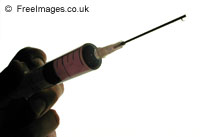International experts to investigate UK drugs trial incident
The UK will call in an international team of experts in the quest to find out why six men participating in a drugs trial in London had to be rushed to hospital with multiple organ failure. The international investigation was announced by UK Health Minister Lord Warner on the same day that the country's Medicines and Healthcare Products Regulatory Agency (MHRA) announced the interim results of its own enquiry. The agency's preliminary conclusion, which needs to be confirmed with further tests, is that the drugs 'showed a pharmacological effect in man which was not seen in pre-clinical tests in animals at much higher doses'. The agency found no evidence of the manufacturing of the drugs, of contamination or dosage. 'Clinical trials in general have an excellent safety record, but it is vital we learn lessons from this incident to avoid any similar situations in the future,' said Lord Warner. 'We are setting up this group now, even before the MHRA investigation is complete, so that it is ready to start work straight away should the MHRA's interim findings be confirmed.' International experts are to be identified by Professor Gordon Duff, Florey Professor of Molecular Medicine and Chairman of the Commission on Human Medicines, who will then chair the expert group. Although many have defended clinical trials, pointing out that incidents such as that in London are extremely rare, the MHRA has said that, in future, 'first-in-man trials' of drugs such as that involved in this case, will only be authorised following a 'precautionary approach', involving expert advice. The trial involved the novel drug TGN1412, developed by German company TeGenero, which was designed to treat leukaemia, rheumatoid arthritis and multiple sclerosis. It was intended to boost the activity of a human immune system protein called CD28, which is present on the surface of white blood cells.
Countries
United Kingdom



